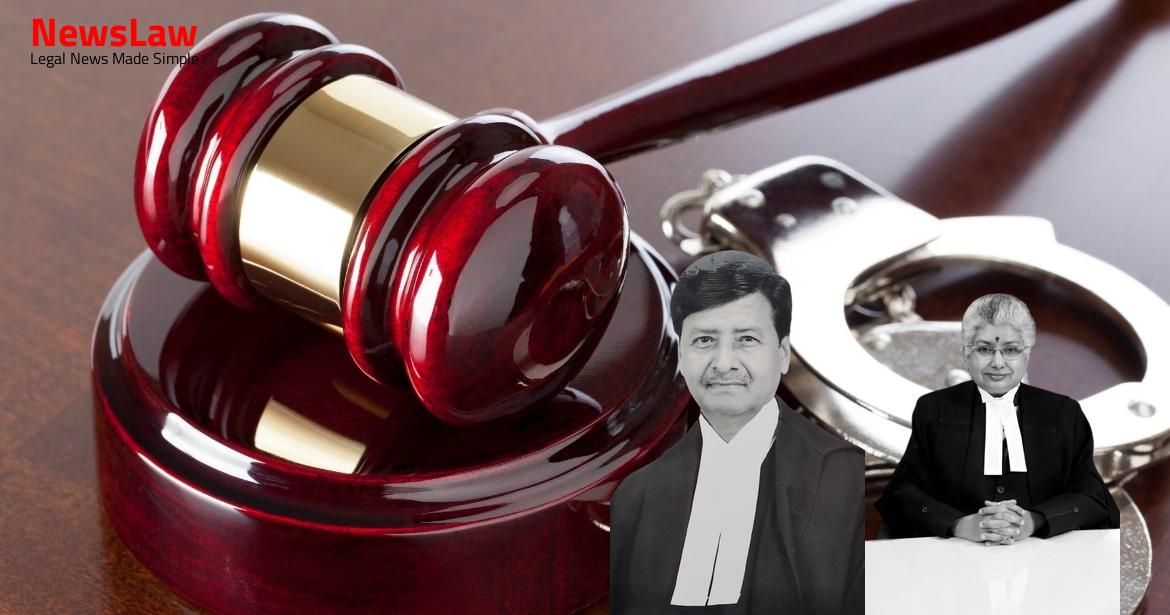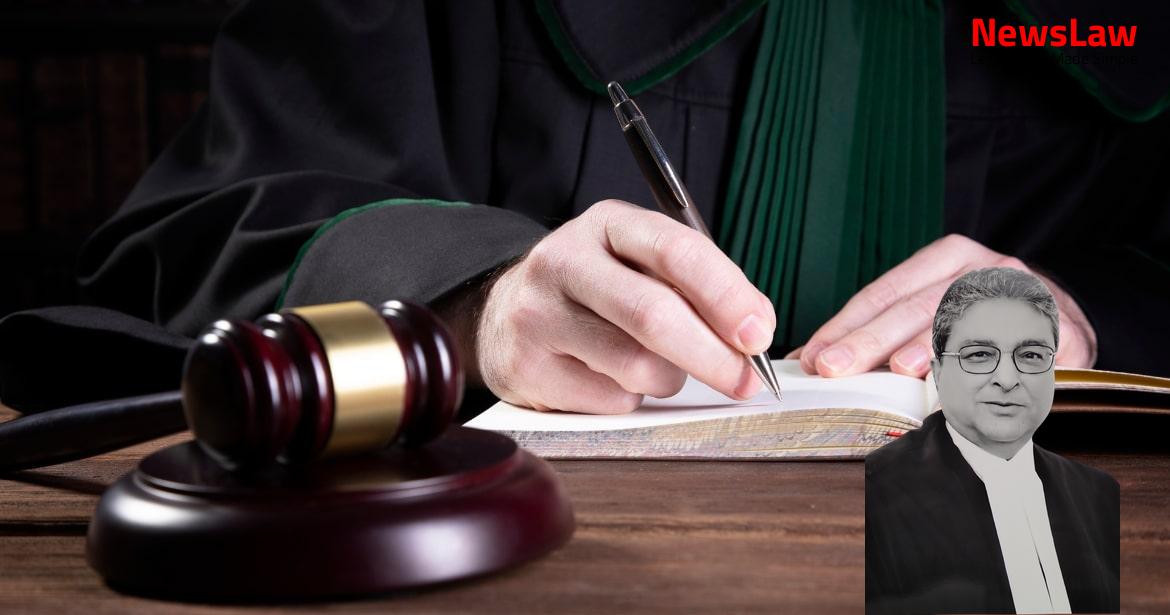The court provided a thorough legal examination of penalties imposed for non-compliance with SEBI summons in the securities market. The analysis delves into the nuances of statutory provisions, retrospective application of law, and considerations for determining penalties. Understanding these legal aspects is crucial for entities operating within the regulatory framework of SEBI.
Facts
- The appellants were found to be non-compliant with multiple summons issued by SEBI requesting information and documents.
- SEBI conducted investigations into the acquisition and trading of shares of Shonkh Technologies International Limited (STIL).
- The appellants, along with other entities, were implicated in facilitating manipulation of the securities market and violating regulations.
- The appellants failed to appear and provide crucial details during the investigation process despite multiple opportunities given by SEBI.
- SEBI initiated adjudication proceedings against the appellants for non-compliance and possible imposition of penalties.
- The maximum penalty of Rs. 1,50,000/- could have been imposed as per the unamended Section 15A(a) of the 1992 Act when the summons were issued.
- SEBI initiated separate adjudication proceedings against the appellants for non-compliance with the summons.
- The AO imposed a penalty of one crore on each appellant for willful failure to respond to the summons.
- Initially, SAT dismissed the appeals due to delay, but later directed to condone the delay upon depositing a cost to SEBI.
- SAT upheld the imposition of penalties by the AO in its common Order dated 07.01.2009.
- SAT dismissed the application for condonation of delay and the appeal on 01.09.2006.
- The penalty structure under Section 15A(a) was amended in 2002 to make it more stringent.
- SEBI proceeded against the appellants for fresh non-compliance in April 2003 under the amended provisions.
- SAT found the actions of the AO in levying penalties justified under the amended provisions.
- SEBI’s issuance of fresh summons in April 2003 was viewed as condoning the previous lapses.
- The appellants were penalized under Section 15A(a) for adopting dilatory tactics in the investigations.
- SAT upheld the respondent’s Order dated 31.12.2003 and dismissed the appeal.
Also Read: Admission Deadline Adherence in Medical Courses
Arguments
- Appellants challenging the Orders of SAT upholding penalty for non-compliance of summons during SEBI investigations.
- Contention that non-compliance of summons is not a continuing wrong and later summons are part of the earlier ones.
- Section 15-J lists factors for determining penalty; penalty based on provisions from Section 15-A to Section 15-HA of SEBI Act.
- Respondent citing MBL and Company Limited case to justify and proportionate penalty amount of Rs. one crore.
- Appellants’ counsel relying on various court judgments to argue that amended penalty provision cannot be applied retrospectively.
- Appellant’s contention regarding non-compliance of summons rejected previously
- Non-compliance considered a fresh offense under Section 15A(a) of the 1992 Act
- Maximum penalty under unamended Section 15A(a) was Rs. 1,50,000
- Appellants argue penalty should be calculated based on unamended provision, not enhanced penalty
- Penalty of Rs. 1 crore for non-compliance deemed excessive and unsustainable by appellants
Also Read: From Nominee to Disqualified: Supreme Court Scrutinizes Age Evidence, Declares Election Invalid
Analysis
- Section 15A(a) of the 1992 Act imposes a penalty for failure to furnish documents to SEBI.
- The power to direct a person to furnish information or documents includes the power to request statements and clarifications.
- The penalty imposed must consider factors like disproportionate gain, investor loss, and the repetitive nature of the default.
- Section 11C(3) empowers the Investigating Authority to call upon individuals to provide information and make statements.
- The penalty imposed was argued to be not excessive and did not require reduction.
- No legal questions under Section 15Z of the 1992 Act were raised for consideration.
- Section 11C introduced in 2002 allows the Investigating authority to request information, books, and documents for investigation purposes.
- The amended provisions of Section 15A(a) of the 1992 Act applied when levying the penalty on the appellants.
- Penalty was restricted to a sum not exceeding one lakh and fifty thousand rupees prior to 29.10.2002.
- The penalty cannot be reduced based on the unamended provisions of Section l5A(a) of the 1992 Act as crucial information was knowingly withheld.
- No retrospective application of statute/provision of law arises in this case.
- SEBI issued numerous summons to the appellants for cooperation and documentation.
- Section 15J mandates the consideration of specific factors while computing penalty.
- AO’s order in Civil Appeal No 1742 of 2009 and Civil Appeal No 5833 of 2009 lacked attributing motive or gains to the appellants.
- Summons vis-à-vis compliance status is detailed and discussed for various appeals.
- The penalty imposed was proportionate and within the legal provisions.
- AO’s role encompassed both investigation and adjudication, which was in violation of natural justice principles.
- Non-compliance with summons hampered investigations and affected the conduct of the investigation.
- Investigations revealed appellants facilitated market manipulation and obstructed investigation.
- SEBI’s jurisdiction extension and powers were delineated pre and post the 2002 amendment.
- The penalty levied, being the maximum permissible, was considered justified given the severe offence and non-cooperation.
- Explanation to Section 15J clarified the factors considered in adjudging penalty under relevant Sections.
- AO’s failure to consider factors under Section 15J and the impact of penalty imposition were highlighted.
- Non-compliance with fresh summons constituted a fresh offence by the appellants.
- Summary reflects the background, investigation details, and penalties imposed in relation to the appellants’ actions.
- The Court cannot go into the proportionality and quantum of the penalty imposed unless it is distinctly disproportionate or arbitrary.
- Penalties for failures must be proportionate to the nature of the violation and not arbitrary.
- Sections 15A to 15HA of the SEBI Act must be read along with Section 15J to avoid inconsistencies.
- The investigation found the appellants involved in unauthorized share transfers that could undermine the securities market integrity.
- Several cases were cited where penalties were upheld by the Court for similar violations.
- The penalty imposed on the appellants was deemed fair, just, and reasonable, and thus upheld.
- Appellants fall under the category of ‘persons associated with the securities market’ under Section 11C(3) of the 1992 Act.
- Investigating Authority has the power to direct such persons to provide information or produce documents for investigation as per Section 11C(3) of the 1992 Act.
- Failure of the appellants to comply with directions under Section 11C(3) resulted in the Investigating Authority being empowered to levy penalties under Section 15A(a) of the 1992 Act.
- SEBI can delegate its powers and functions under the Act to its members, officers, or other persons as deemed necessary under Section 19 of the 1992 Act.
Decision
- Penalty of rupees one crore imposed on the appellants.
- Parties to bear their respective costs.
- No merit found in the appeals, hence dismissed.
- Penalty levied in accordance with amended provisions of Section 15A(a) of the 1992 Act.
- Amended provision effective from 29.12.2002, penalty of Rs.1,00,000/- for each day of failure or one crore rupees, whichever is less.
Case Title: DKG BUILDCON PRIVATE LIMITED Vs. THE ADJUDICATING AND ENQUIRY OFFICER, SEBI (2022 INSC 960)
Case Number: C.A. No.-001742-001742 / 2009



